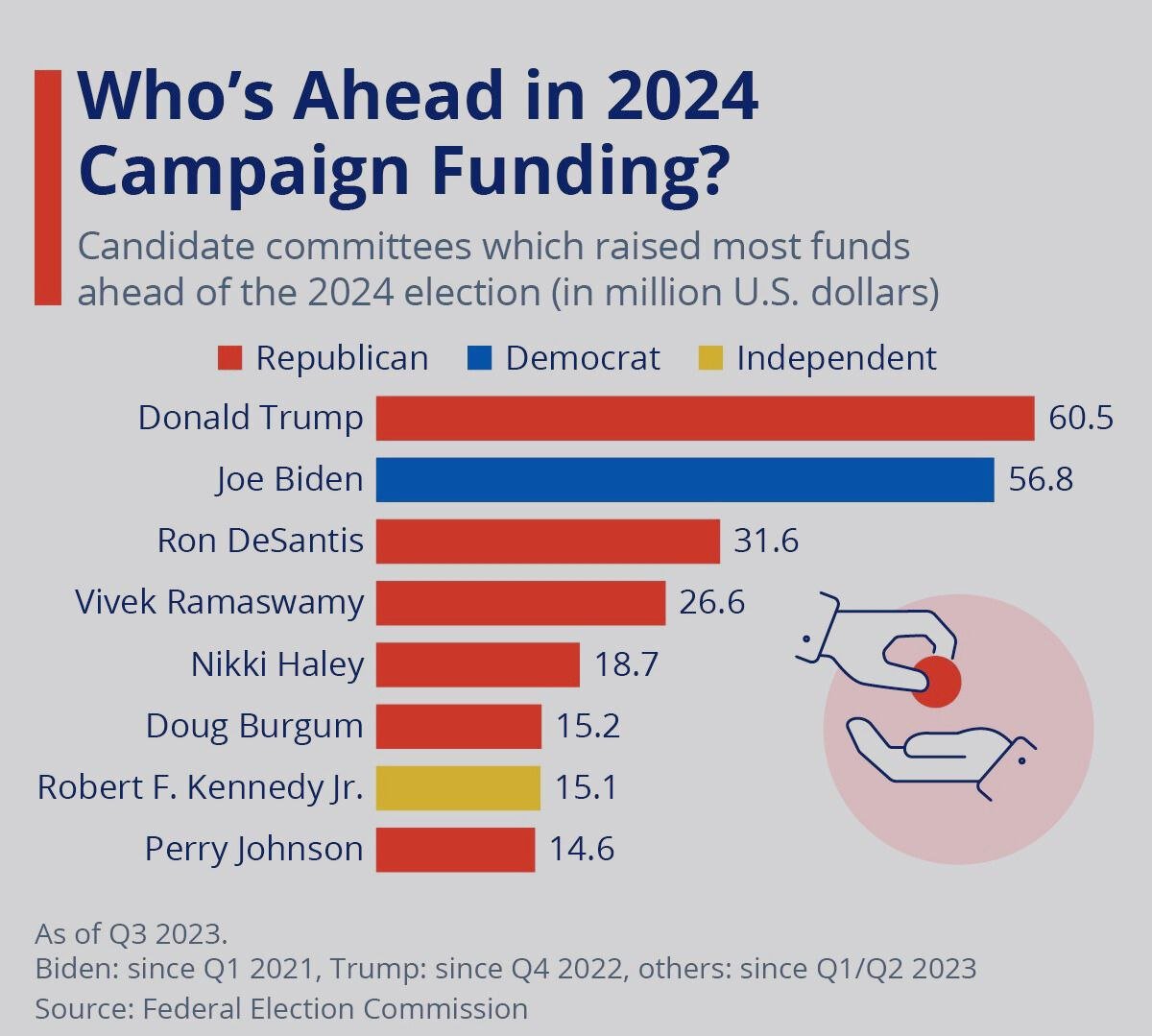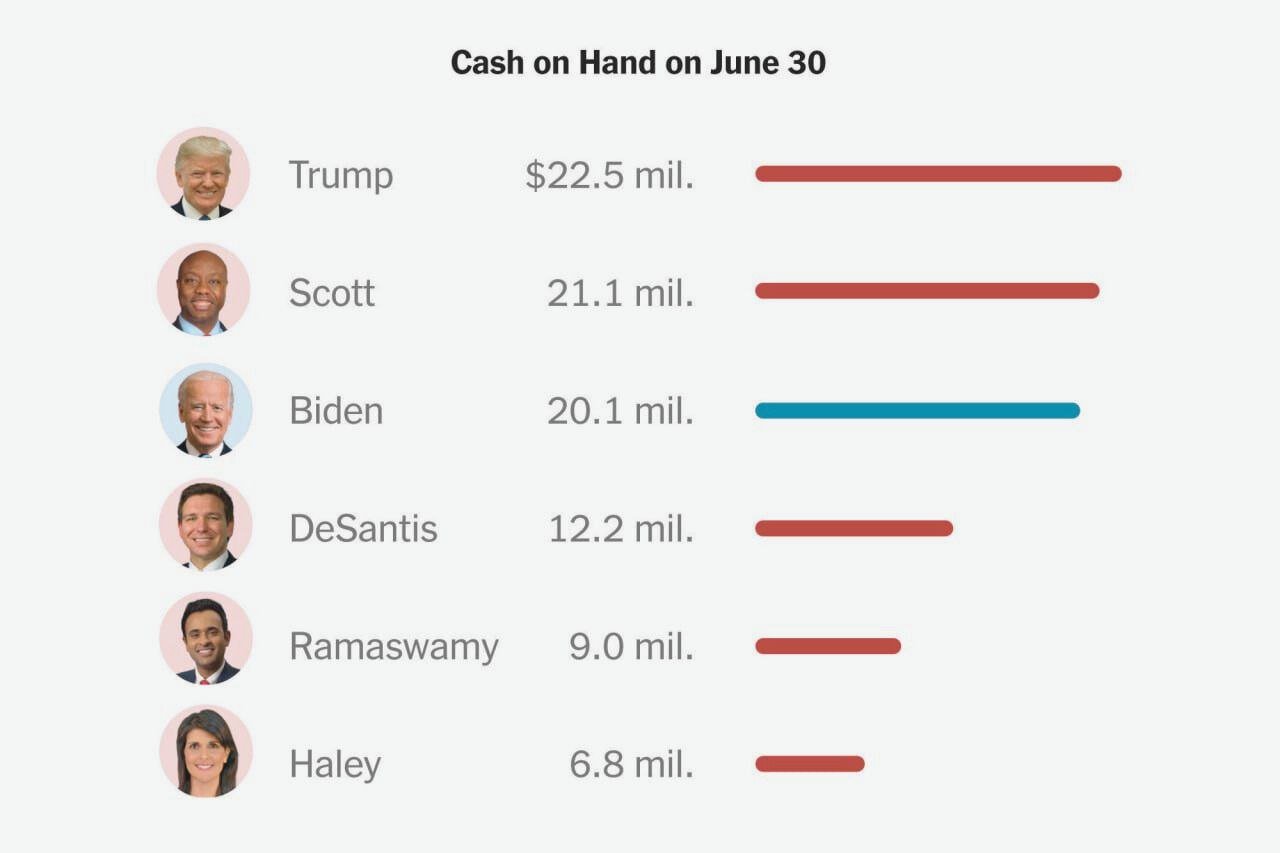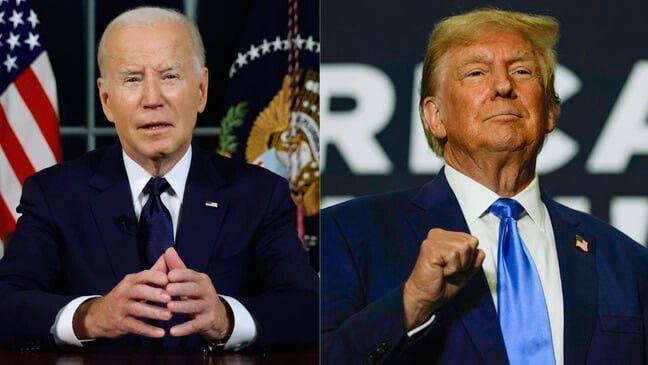Contents
Overview of Campaign Funding in US Presidential Elections
Campaign funding has long played a crucial role in US presidential elections, shaping the strategies and outcomes of candidates across the political spectrum. Historically, the landscape of campaign finance has evolved significantly, reflecting changes in legislation, judicial rulings, and societal attitudes towards money in politics. Understanding this evolution provides key insights into the current state of presidential campaign funding and its profound impact on the electoral process.
In the early days of American politics, campaign funding was relatively unregulated, with candidates often relying on personal wealth or informal donations from supporters. This began to change with the introduction of the Federal Election Campaign Act (FECA) in 1971, which sought to increase transparency in campaign finance by imposing limits on contributions and expenditures, and establishing the Federal Election Commission (FEC) to enforce these regulations. FECA marked a significant shift towards more structured and accountable campaign funding practices.
The landscape of campaign finance underwent another major transformation with the Supreme Court’s decision in Citizens United v. FEC in 2010. This landmark ruling allowed corporations and unions to spend unlimited amounts on independent political expenditures, effectively giving rise to Super Political Action Committees (Super PACs). Unlike traditional PACs, which are subject to contribution limits, Super PACs can raise and spend unlimited funds, provided they do not coordinate directly with candidates or their campaigns. This decision has had a profound impact, leading to an influx of corporate donations and significantly increasing the overall amount of money involved in presidential elections.
Today, campaign funding comes from a variety of sources. Individual contributions remain a significant factor, often forming the backbone of a candidate’s fundraising efforts. Political Action Committees (PACs) also play a vital role, pooling contributions from members to support or oppose candidates. Super PACs, as enabled by the Citizens United ruling, have become major players, channeling vast sums of corporate donations into the electoral process. Additionally, small-dollar donations have gained prominence, reflecting a growing trend towards grassroots fundraising and increased political engagement among the general populace.
In summary, the evolution of campaign funding in US presidential elections highlights the complex interplay between legislation, judicial decisions, and the diverse sources of financial support that candidates rely on. As we approach the 2024 election, understanding this intricate landscape is essential for comprehending the strategies and dynamics that will shape the upcoming electoral contest.

Key Sources of Campaign Funding for 2024 Presidential Candidates
As the 2024 US Presidential election approaches, understanding the primary sources of campaign funding for leading candidates is essential. This election cycle has seen a diverse array of financial backers and donors, reflecting evolving trends in political fundraising. Major sources of campaign funding include traditional large donors, political action committees (PACs), small-dollar contributions through online platforms, and industry-specific donations.
Large donors continue to play a crucial role in funding presidential campaigns. Wealthy individuals and corporate entities often contribute significant sums of money to support their preferred candidates. Political action committees, both Super PACs and traditional PACs, also remain significant players. These organizations can pool large amounts of money from various donors to support campaign efforts, often through advertising and other outreach activities.
One of the notable trends in the 2024 election is the rise of small-dollar donations. Platforms like Act Blue and Win Red have facilitated an influx of contributions from grassroots supporters. These small-dollar donations have become a vital part of campaign funding, allowing candidates to build a broad base of financial support while reducing dependency on large donors. This trend signifies a shift towards more democratized funding sources, reflecting the increasing power of individual voters in the political process.
The influence of major industries and interest groups remains significant. Industries such as finance, healthcare, and technology frequently contribute to candidates who align with their policy interests. These contributions can shape campaign strategies and influence policy priorities. Additionally, the role of dark money—funds donated through non-profit organizations that are not required to disclose their donors—poses challenges to transparency in the election process. The lack of disclosure can obscure the true sources of campaign funding and raise concerns about undue influence and accountability.
High-profile fundraising events are another critical aspect of campaign funding. Candidates often host events where wealthy donors can contribute large sums in exchange for access and influence. These events not only generate substantial funds but also serve as networking opportunities for donors and candidates alike. For example, the 2024 election has seen several high-profile fundraisers featuring prominent figures from the entertainment and business sectors, highlighting the intersection of politics, money, and influence.
In sum, the 2024 US Presidential election showcases a complex landscape of campaign funding sources. From traditional large donors and PACs to the growing importance of small-dollar donations, the financial dynamics of this election reflect broader trends in political engagement and influence.

Impact of Campaign Funding on Election Outcomes
Campaign funding plays a pivotal role in shaping the outcomes of presidential elections in the United States. Historically, there has been a notable correlation between the amount of money a campaign can raise and its likelihood of success at the polls. Numerous studies and historical data support the premise that higher levels of campaign spending can significantly enhance a candidate’s visibility and influence. For instance, the Federal Election Commission (FEC) reports consistently show that candidates with substantial war chests tend to dominate media coverage, thereby reaching a broader audience.
Well-funded campaigns have the resources to invest in extensive advertising, both traditional and digital, enabling them to effectively counter opponents’ narratives and frame their own messages more compellingly. This comprehensive media strategy can sway public opinion, mobilize voter turnout, and ultimately, secure electoral victories. A 2020 study by the Pew Research Center highlighted that candidates who outspent their rivals were more likely to win their races, underscoring the importance of financial resources in modern political contests.
However, the financial disparities among candidates raise significant concerns about the competitiveness of elections. When only a few candidates have access to substantial funding, it limits the range of voices and perspectives presented to the electorate. This financial disparity can stifle competition and reduce the overall dynamism of the electoral process, potentially leading to voter disenchantment and decreased public trust.
The ethical implications of campaign funding practices further complicate the landscape. Large donations from wealthy individuals and interest groups can lead to perceptions of undue influence and potential corruption, undermining the integrity of the electoral process. These ethical concerns highlight the need for rigorous campaign finance reform to ensure a level playing field and restore public confidence in the democratic system.
Reforming Campaign Finance: Proposals and Challenges
Efforts to reform campaign finance in the United States have been a topic of intense debate for decades. Numerous proposals aim to alter the landscape of campaign funding, each bringing forward a unique set of advantages and challenges. One significant proposal is the public financing of campaigns, which seeks to reduce candidates’ reliance on private donations and level the playing field. Proponents argue that public financing can diminish the influence of wealthy donors and special interest groups, promoting a more equitable electoral process.
Another common proposal involves setting stringent limits on contributions and expenditures. Advocates believe that capping the amounts individuals and organizations can contribute will curb the disproportionate influence of big money in politics. This approach is often coupled with increased transparency requirements, mandating detailed disclosure of all campaign contributions and expenditures. Transparency initiatives aim to foster public trust by ensuring that voters know who is financially backing each candidate.
However, these reform initiatives face significant challenges. Political opposition is a primary obstacle, with many lawmakers resistant to changes that could disadvantage their fundraising efforts. Legal constraints also pose a formidable barrier; the landmark Supreme Court decision in Citizens United v. FEC established that corporate funding of independent political broadcasts in candidate elections cannot be limited under the First Amendment. This ruling complicates efforts to impose stricter campaign finance regulations.
Potential unintended consequences further complicate the reform landscape. For instance, capping contributions may inadvertently push donations to less regulated channels, such as Super PACs or dark money groups, which can operate with minimal transparency. Additionally, public financing systems require robust funding mechanisms, which can be a contentious issue among taxpayers.
The role of grassroots movements and public opinion cannot be understated in shaping the future of campaign finance reform. Grassroots advocacy can drive legislative change and increase awareness about the importance of campaign finance issues. Public opinion, as reflected in voter support for reform initiatives, can also put pressure on elected officials to prioritize these changes. Ultimately, achieving meaningful reform in campaign finance will require navigating a complex array of political, legal, and social challenges.
OUR SITE:toinewsalert.com
Tragic Minneapolis Shooting: Police Officer, Civilian, and Shooter Dead, Responders Wounded
Tragic Minneapolis Shooting: Police Officer, Civilian, and Shooter Dead, Responders Wounded
“Station 19” Bids Farewell: What Became of Every Character in the Series Finale?
“Station 19” Bids Farewell: What Became of Every Character in the Series Finale?
The Biggest Announcements from PlayStation’s Summer State of Play
The Biggest Announcements from PlayStation’s Summer State of Play

